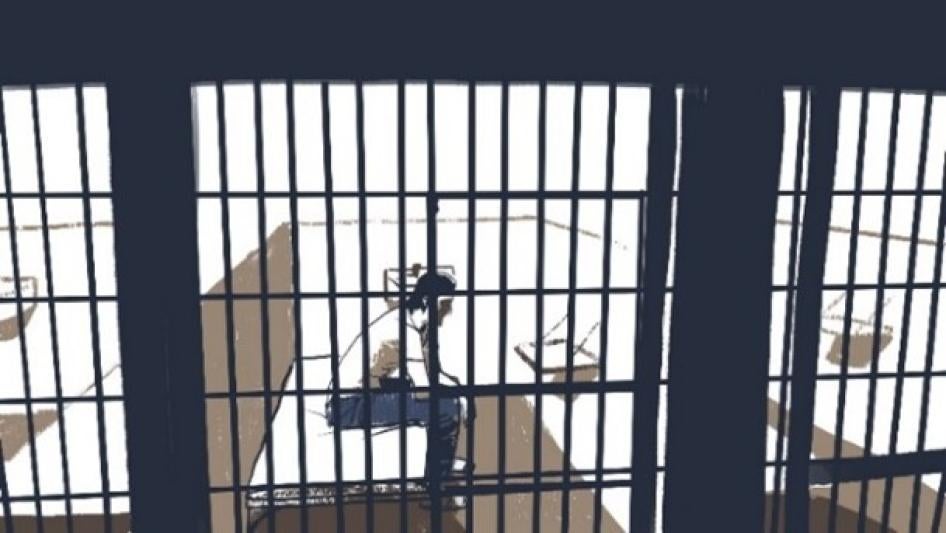(Beirut) – The Iraqi government should immediately withdraw a proposed law currently before parliament that would impose the death penalty for same-sex conduct and imprisonment for transgender expression, Human Rights Watch said today. If adopted, the bill would violate fundamental human rights, including the rights to freedom of expression, association, privacy, equality, and nondiscrimination of lesbian, gay, bisexual, and transgender people (LGBT) in Iraq.
On August 15, 2023, Raad Al-Maliki, an independent member of parliament, introduced a bill that would amend the “Law on Combatting Prostitution,” No. 8 of 1988, to explicitly make same-sex relations and transgender expression a criminal offense. If passed, the bill would punish same-sex relations with the death penalty or life in prison, punish “promoting homosexuality” with a minimum seven years in prison and a fine, and criminalize “imitating women” with up to a three-year sentence. In introducing the bill, Al-Maliki said its purpose was to “preserve the entity of the Iraqi society from deviation and calls for ‘paraphilia’ [abnormal sexual impulses] that have invaded the world.”
“Iraq’s proposed anti-LGBT law would threaten the lives of Iraqis already facing a hostile environment for LGBT people,” said Rasha Younes, senior LGBT rights researcher at Human Rights Watch. “Iraqi lawmakers are sending an appalling message to LGBT people that their speech is criminal and their lives are expendable.”
Though consensual same-sex conduct is not explicitly criminalized in Iraq, the authorities have used vague “morality” laws to prosecute LGBT people. The introduction of the anti-LGBT bill follows months of hostile rhetoric against sexual and gender minorities by Iraqi officials, as well as government crackdowns on human rights groups.
The bill reviewed by Human Rights Watch equates same-sex relations with “sexual perversion,” which it defines as “repeated sexual relations between members of the same sex … if occurring more than three times.” The law also provides for seven years in prison and a fine between 10 million Iraqi dinars (US$7,700) and 15 million dinars ($11,500) for “promoting homosexuality,” which is undefined.
The bill specifically targets transgender women, with a prison term between one and three years or with a fine between 5 million dinars ($3,800) and 10 million dinars ($7,700) for anyone who “imitates women.” The law defines “imitating women” as “wearing makeup and women’s clothing” or “appearing as women” in public spaces.
The bill prohibits hormone replacement therapy and what it calls “sex change” based on personal desire, as well as any attempt to change one’s gender identity, punishable by prison terms between one and three years. The same penalty applies to any surgeon or other doctor who performs gender-affirming surgery. The law makes an intersex exception for cases that require a surgical intervention to confirm biological sex, based on the binary categories of male and female.
Violence and discrimination against LGBT people is already rampant in Iraq. The targeting of LGBT people online and lethal violence against LGBT people by armed groups in Iraq has routinely been met with impunity, Human Rights Watch said.
On August 8, the Iraqi Communications and Media Commission issued a directive ordering all media outlets to replace the term “homosexuality” with “sexual deviance” in their published and broadcast language and banning use of the term “gender.”
On May 31, a court in the Kurdistan region of Iraq ordered the closure of Rasan Organization, a human rights organization in the Kurdistan Region, over “its activities in the field of homosexuality.”
In September 2022, members of the Kurdistan regional parliament introduced the “Bill on the Prohibition of Promoting Homosexuality,” which would punish any individual or group that advocates for the rights of LGBT people.
The Iraqi government is responsible for protecting the rights of all Iraqis, Human Rights Watch said. The proposed law contravenes Iraq’s Constitution, which protects the rights to nondiscrimination (article 14) and privacy (article 17), as well as its obligations under international human rights law. The International Covenant on Civil and Political Rights (ICCPR), which Iraq ratified in 1971, affirms the rights to life, liberty, privacy, free expression, and security of the person. Similarly, the Arab Charter on Human Rights, of which Iraq is a member, affirms these rights.
Unequal protection against violence and unequal access to justice are prohibited under international law. The ICCPR, in its articles 2 and 26, guarantees fundamental human rights and equal protection of the law without discrimination. The United Nations Human Rights Committee, the international expert body that provides authoritative interpretations of the covenant, has made clear that sexual orientation is a status protected against discrimination under these provisions.
“The Iraqi government has failed to tackle discriminatory practices that underpin violence against LGBT people,” Younes said. “Instead it has promoted anti-LGBT ‘morality’-based legislation that fuels violence and discrimination against already marginalized sexual and gender minorities. The Iraqi government should immediately abandon the proposed anti-LGBT law and end the cycle of violence and impunity against LGBT people.”








